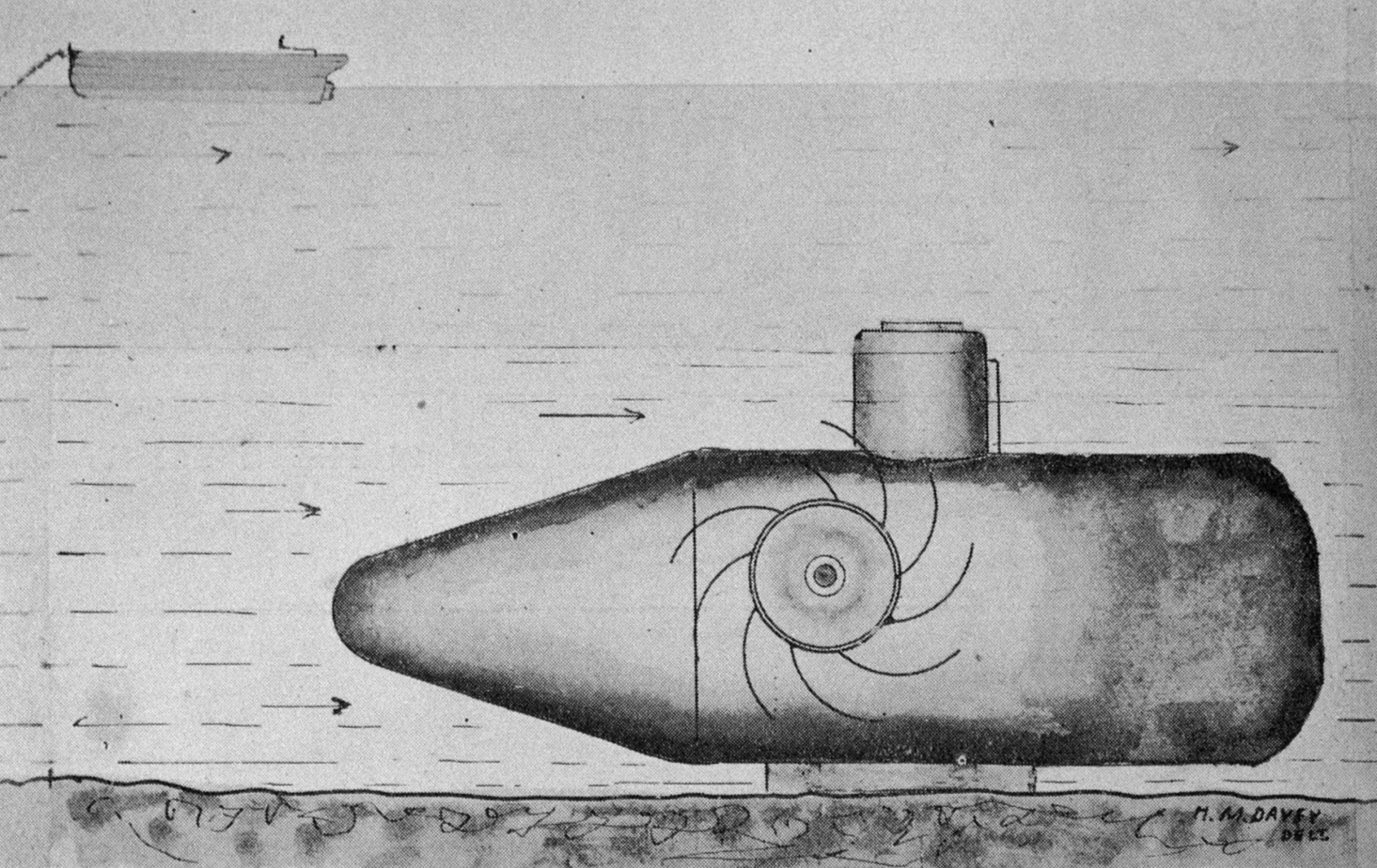

This craft was built 51 years ago by Messrs Sparrow and Co, and was launched from the then Rattray street wharf in December, 1873, being subsequently moored near the end of the Pelichet Bay jetty. After detail work had been completed a trial was made and with eight men enclosed the vessel was submerged about where the Milburn Co’s works now stand.
The air pumps worked all right, but no means of talking to the men below was provided. Matters did not develop satisfactorily inside, and there was a delay of several hours in returning to the surface, the craft finally being towed by a small steamer into shallower water and the crew released much to the relief of themselves and their friends.
The boat, which was named "The Platypus," was never again submerged, and lay for many years on the foreshore.
Curiously enough she was purchased in recent times (for £10) by a man who was present at the lecture. He had her cut into three sections and sent to the Barewood Reefs where at least one of the portions is used as a water tank by a local farmer.
Wharfinger steps down
After a career on ship and on shore, Captain T. Basire, of Port Chalmers, is retiring from service. He was born at Port Chalmers, and as the days of his boyhood were passed amongst shipping, he heard the call of the sea at an early age, and his response found first expression as an apprentice in the Henderson clippers. Practical experience in the essentials of seamanship
qualified him for positions of responsibility before steam engines started to conquer the eccentricities of winds and tides. He saw the first insulated steamers begin to enter into competition with the wind jammers and to oust them as the oversea carriers of frozen produce. Transferring to the Union Company’s fleet as an officer, Capt Basire had a lengthy experience all over
the Pacific, before he left the bridge to assume the position of wharfinger at Port Chalmers. As an expert handler of shipping he won a unique position amongst seafaring men. Although he is otherwise alert end robust, an injured leg has incapacitated him from active service. His retirement removes a stalwart figure from the practical sphere of shipping activities.
Flour cartel alleged
Writs have been issued by the Crown against the Crown Milling Co (Dunedin), Fleming and Co (Invercargill), Woods Brothers (Christchurch), the Atlas Roller Mills (Timaru) and Distributors Ltd, claiming from each of them the sum of £500 for an alleged breach of the Commercial Trusts Act. The Crown will also apply for an injunction to restrain an alleged breach of the Statute. The allegation is that Distributors Ltd — to which each of the companies named, with other companies, is connected — has acquired a practical monopoly of the supply of flour throughout the greater part of New Zealand, contrary to the public interest, and therefore a breach of the Act. It is not expected that the cases can be taken in the Supreme Court till August next. — ODT, 16.5.1924
Compiled by Peter Dowden












